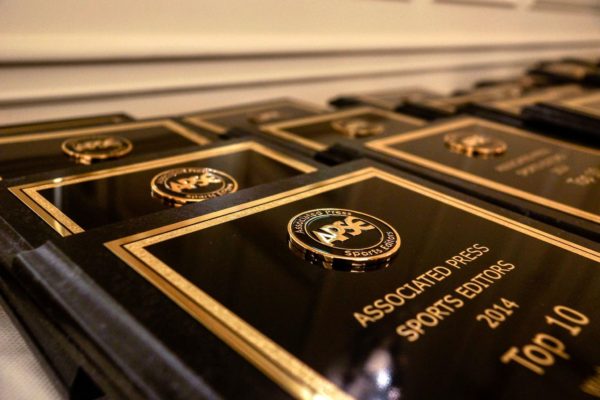Dave Wannstedt has answered many questions during his 34-year coaching career – and there was no question this question was coming.
 |
| Bruce Carver / Indiana University |
The University of Pittsburgh football coach spoke June 25 to a group of sports editors during the keynote luncheon at the annual Associated Press Sports Editors summer convention in Pittsburgh.
When the subject shifted to his mangled mustache, Wannstedt didn’t shy away.
"Most places I go there’s signs hanging on the wall making reference to that," Wannstedt said, drawing laughs from his audience.
Some Pitt fans have helped grow the legend, bearing T-shirts that pay homage to his trademark botch job.
"I cut it up pretty bad," he said.
Wannstedt, a Pittsburgh-area native, also has built what he described as a good relationship with the media throughout the years by being honest and appreciating their role.
"I’ve been criticized for being too media friendly," he said. "But I wouldn’t have it any other way."
A coaching career that has included 11 bowl appearances, two undefeated national championship and a Super Bowl title came full circle in 2004, when he was hired by Pitt, where he starred in the 1970s.
He explained his beliefs about dealing with the media, and how the rules differ from college to the pros. His first head coaching job came with the Bears in 1993, when he took over for Mike Ditka. He also coached the Miami Dolphins before returning home and to the college game.
"In the pros, if a receiver drops a catch I have no problem saying he makes all that money, he needs to make the catch. In college we cannot single out a player."
Wannstedt said he’s willing to take more of the blame in the college game, then cracked wise about having different starting quarterbacks in six consecutive seasons while in the pros.
"I told my wife, on my tombstone I’m going to put, ‘If he only had a quarterback,’ " he said, referring to the scrutiny he faced from media thanks to quarterback shortcomings.
The evolving media landscape has provided Wannstedt some challenges, too. Message boards, Twitter, Facebook and other social, mobile methods of communication have proven difficult to keep up with.
"We’re Tweeting, I guess is what you call it," Wannstedt said, adding that often he doesn’t think about doing it until it’s too late. "But I think the NCAA will ban it sooner or later.
"Do I like it? No," he added. "Do we do it to stay up against everyone else? Yes."





